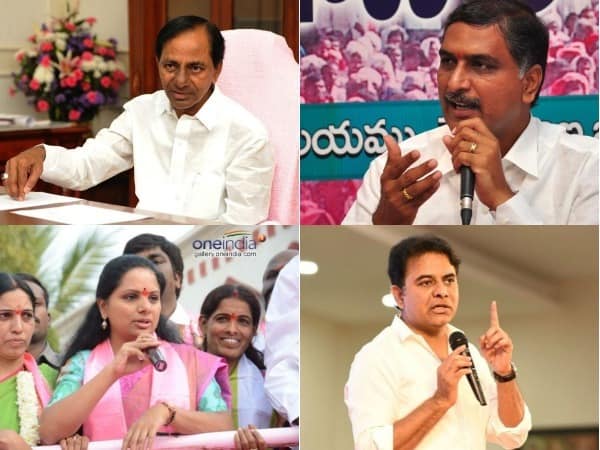While the rest of the country battles swollen rivers and devastating floods, Telangana is preoccupied with watching another storm—the one brewing inside the Kalvakuntla household. Forget the weather app, the only forecast people here need is: 100% chance of family feuds, with scattered corruption scandals.
The Bharat Rashtra Samithi (BRS), formerly TRS, once the proud spearhead of Telangana’s statehood movement, is now reduced to a family-run soap opera. Its founder, K. Chandrasekhar Rao (KCR), once hailed as the messiah of Telangana, today looks more like the director of a family drama gone horribly wrong. His decision to suspend his own daughter, K. Kavitha, has not only exposed the cracks in the party but also revealed what many have always whispered: this is not a political party, it’s a family trust with electoral rights.
No other regional party in India has elevated dynastic politics to an art form quite like KCR’s BRS. Son K.T. Rama Rao (KTR) was anointed working president of the party when he was still globe-trotting, while daughter Kavitha was resurrected through the backdoor after losing Nizamabad in 2019—made MLC so she wouldn’t feel left out at family dinners. Nephew T. Harish Rao, meanwhile, was assigned plum ministries, such as Irrigation and Health. Add in a handful of other relatives strategically placed in Parliament, councils, and even the media, and you have a complete family package: politics, power, and propaganda.

If dynastic politics were an Olympic sport, KCR’s family would have brought home more medals than P.V. Sindhu.
But the real drama begins with Harish Rao. Unlike KTR, who spent the Telangana agitation years in the U.S., Harish was on the ground, sloganeering, mobilizing, and often leading from the front. His popularity among MLAs and the public is something even KCR and KTR envy. He wins elections with thumping majorities while others barely scrape through. In short, he was the natural successor.
Except KCR never intended it that way. He sidelined Harish by promoting his own son as heir-apparent, sparking tensions that never really died down. Rumors even swirled that Harish might break away with his loyalists, but KCR allegedly dangled the sword of the multi-crore Kaleshwaram irrigation scam over his nephew’s head. The irony? Kaleshwaram is not just Harish Rao’s albatross; KCR himself is neck-deep in its irregularities.

Against this backdrop came the bombshell: Kavitha’s suspension. Once her father’s pet project in politics, she now finds herself excommunicated. Her claim? A grand conspiracy by Chief Minister A. Revanth Reddy and Harish Rao to fix her father in the Kaleshwaram scam. That’s rich, considering Harish was the irrigation minister when the alleged irregularities took place. But family squabbles don’t always follow logic; they follow grievances.
Revanth Reddy, the Congress CM, isn’t just a spectator in this circus. He has personal scores to settle. Remember the infamous “cash-for-vote” scam during the MLC polls, where he was humiliated? He hasn’t forgotten. With the Ghosh Commission probing the Kaleshwaram scandal and the High Court keeping punitive actions on hold, Revanth has every reason to keep BRS leaders dangling, especially if it means embarrassing KCR’s brood.
And then there’s the BJP—patiently biding its time like a hawk circling over a wounded prey. The saffron party knows that every crack in the BRS can be exploited. A weakened KCR, a sidelined Harish, and a rebellious Kavitha threatening to float her own outfit—it’s the perfect storm for the BJP to swoop in and demand accountability, especially on why Harish’s name doesn’t figure prominently in the Kaleshwaram probe.
So, where does this soap opera head? Kavitha may float her own outfit, but Congress has already said “no entry” for her, slamming the door in advance. Harish Rao remains a reluctant insider, popular but chained. KTR continues to pose as the crown prince. And KCR—once the tallest leader of Telangana—is reduced to the role of a patriarch watching his legacy crumble under the weight of family egos and corruption scandals.
As for the people of Telangana? They’re left wondering if their struggle for statehood was only to replace one exploitative dynasty with another. Politics here isn’t about governance anymore—it’s about which family member gets the bigger room in the palace of power.






